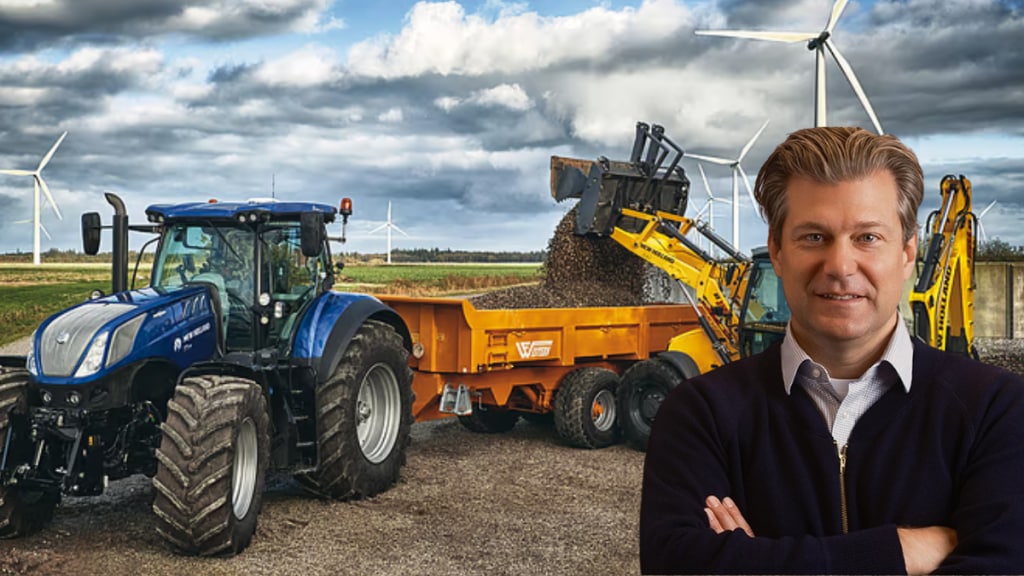Agricultural equipment maker CNH can continue supplying the US market for more than six months without fresh shipments from India, even as steep tariffs complicate trade flows, CEO Gerrit Marx said on Tuesday.
Tariffs a short-term hurdle
The Italian-American firm, which exports about 30% of its India-made machines to the US, faces a 50% levy on agricultural machinery imports from India. Marx described the measure as a “pause in an ongoing conversation” rather than a final settlement, and voiced optimism that a resolution could emerge by early next year.
“At the current 50%, you don’t export. We have enough stock of locally India-made machines already in the US. Given that the market is slow and we have a decent level of stock, we just stop shipping at this point and wait for the real deal to come up,” Marx told reporters on his second visit to India.
He noted that CNH was impacted in the same way as other farm equipment manufacturers, but cautioned against hasty production shifts in response to tariff swings. “I am very hesitant right now to move production from one place to another because of tariffs that we didn’t even know eight months ago. And maybe they look different again eight months from now,” he said.
While the near-term challenge is keeping exports to the US commercially viable, Marx insisted CNH’s investment plans in India are guided by long-term market growth, not trade disputes. “We are not setting up a second plant in India for exports to the US. We are doing it because it’s the right thing to do, to go double down on utility light tractors,” he said.
India expansion remains priority
The London-headquartered group, which makes tractors, harvesters and construction machinery, is scouting for about 60 acres to build its second dedicated tractor factory in India. The proposed facility will add to existing plants in Greater Noida, Pune and Pithampur, taking its total to four.
With the new unit, CNH aims to lift the market share of its New Holland brand in India from around 4–5% today to double digits within five years. The tractor business contributes roughly 65% of CNH India’s $1 billion revenue. “We are currently running scenarios to add another plant in India, which will enable us to grow into a double-digit market share for tractors in over five years’ time,” Marx said.
In 2024, CNH built 51,000 tractors in India, selling 37,000 locally and exporting 14,000 to nearly 80 countries. While Europe, the Middle East and Africa take 70% of exports, the US remains an important market despite the current hurdles.
CNH is also reshaping its India strategy by empowering local teams to design products suited to domestic farmers, particularly compact tractors in the 35–49 horsepower segment. “There is a very strong push here locally to have very cost-efficient digital technologies, fleet management systems, auto guidance systems, farm management systems, stuff that is suitable to the Indian farmer,” Marx said.
CNH India managing director Narinder Mittal added that the company is expanding beyond its traditional higher horsepower strengths to tap demand in the 35–40 HP category. “Our strategy is to address the needs of farmers across segments and price points,” he said.

